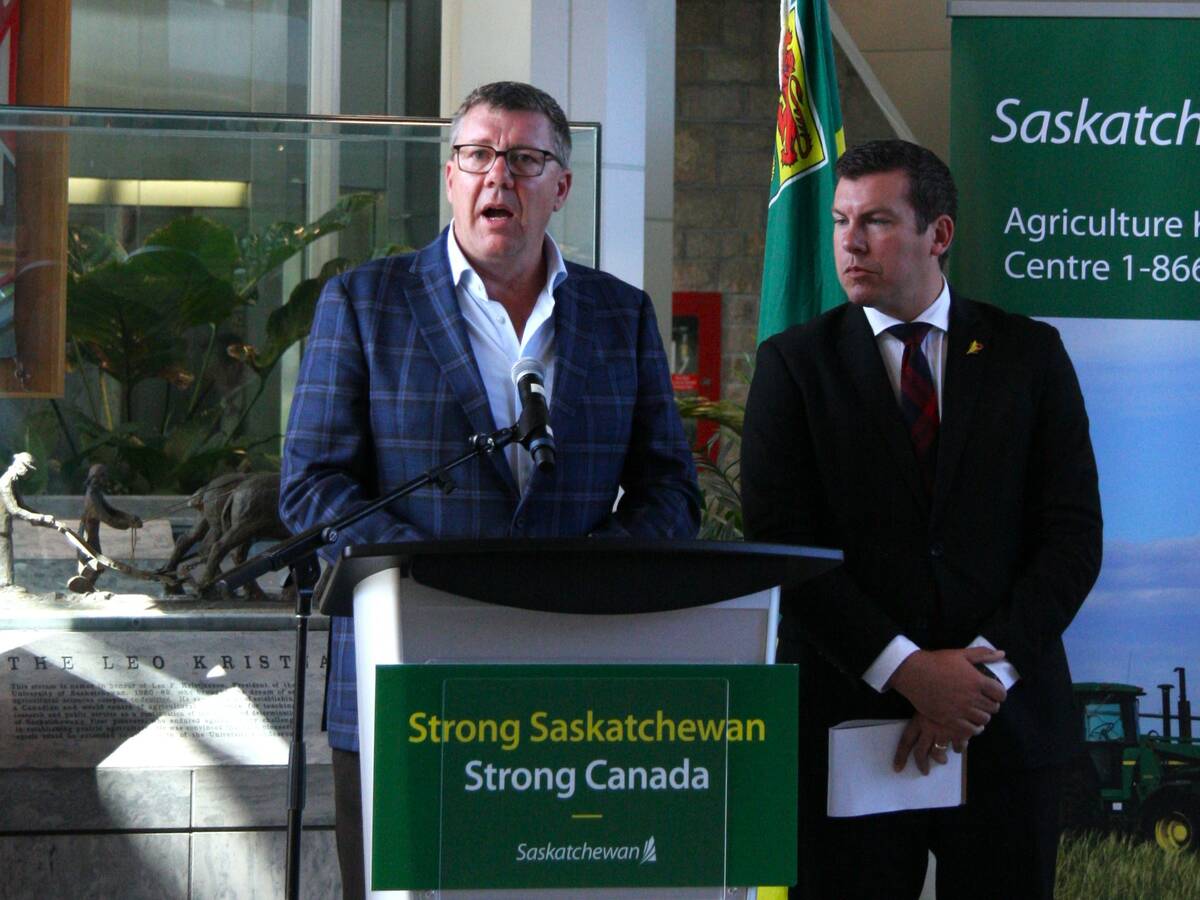Canada’s defence of supply management protections is not a significant roadblock in stalled world trade talks, says Canada’s chief agriculture negotiator, despite the claims of exporter critics.
Gilles Gauthier told Dairy Farmers of Canada’s annual policy conference in Ottawa Feb. 3 that a vast gap between competing positions continues to create a stalemate in World Trade Organization talks.
He was skeptical of claims by WTO director-general Pascal Lamy that momentum is gathering to conclude the Doha Round of negotiations by the end of 2011, the 10th anniversary of the launch.
Read Also

Key actions identified to address canola tariffs
Federal and Saskatchewan governments discuss next steps with industry on Chinese tariffs
A DFC delegate noted that Canadian critics of supply management continue to insist Canada’s defense of the high-tariff protections is a key part of the stalemate. Is this true?
Gauthier said the debate over sensitive product protection is far down the list of issues.
He said the major stumbling block is a dispute between the United States and powerhouse “developing countries” such as China, Brazil and India over what concessions each side should make.
Most of the issues in the dispute do not relate to agriculture.
“The real stumbling block is that the U.S. believes that large emerging markets … ought to be more forthcoming and be prepared to make a more significant contribution to the package,” he said.
That means the U.S. wants more access to their markets.
However, these countries note that the current negotiation is called the Doha Development Round and they are still considered developing, even though their economies have boomed in the past decade.
As a result, they should be able to protect their markets while having more access to developed country markets.
“There is significant resistance there to make significant concessions,” said Gauthier. “It is hard to see on the horizon how that gap will be narrowed.”
On agricultural issues, he said the sensitive product debate is just one of a dozen disputes and far from the most contentious.
Much higher on the list are domestic subsidy levels in the U.S. and the European Union and European insistence that rules limit the ability of other countries to use geographic indicators with European names on agricultural products produced elsewhere.
“A number of issues will have to be resolved before we get to sensitive products,” said Gauthier.
Still, if the discussion eventually gets to that topic, Canadian officials say the country stands alone in insisting that supply managed sector protections not be reduced.
The proposal before negotiators and accepted by all but Canada would require a significant cut in over-quota tariffs and an increase in guaranteed access for foreign products into protected supply managed sectors.
















